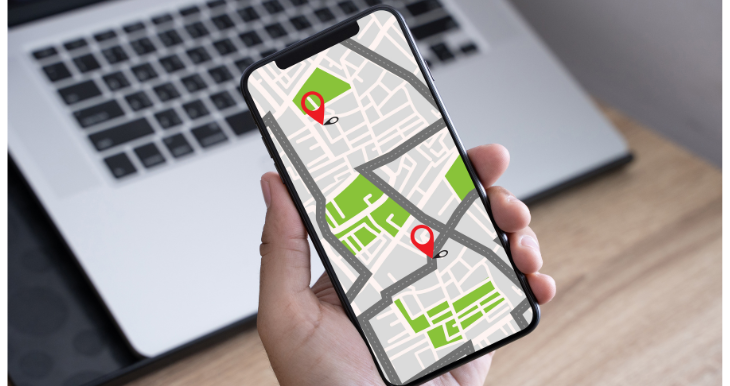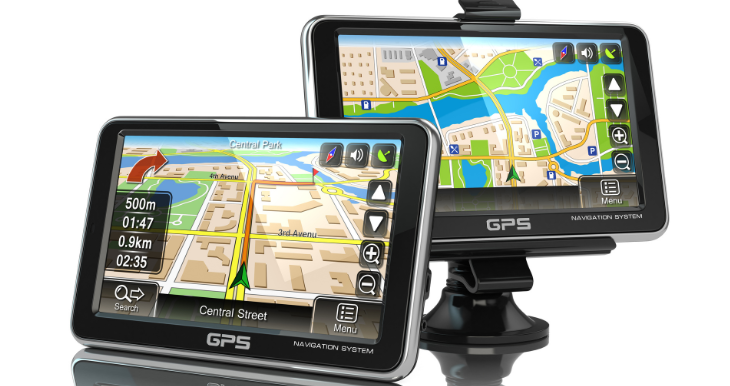Answer these simple questions and we will find you the BEST prices
Which type of solar quotes do you need?
It only takes 30 seconds
100% free with no obligation

Get up to 4 quotes from our selected suppliers by filling in only 1 form

Save money by comparing quotes and choosing the most competitive offer

Our service is 100% free and with no obligation
- Market-Inspector.co.uk
- Vehicle Tracking
- Vehicle Tracking Cost
How to Find the Best Price for Vehicle Tracking


- Vehicle tracking systems can offer an array of advantages, including improved fleet efficiency, reduced operational costs, enhanced security, and better customer service.
- Choosing a subscription-based tracking service can be advantageous, particularly for insurance considerations. Despite the regular monthly or yearly cost, it unlocks access to features and services such as 24/7 monitoring and detailed reports.
- Insurance-approved vehicle trackers can lead to reduced insurance premiums and compliance with industry regulations.
- The most significant factor affecting your vehicle tracking system's price is your fleet's size.
This guide is designed to help business owners navigate the complex world of vehicle tracking, ensuring you find the best price and system that suits your business needs.
We will explore various GPS tracker options, from budget-friendly to high-end models, discuss installation costs, and the benefits of subscription-based tracking.
Additionally, we will cover the importance of insurance-approved devices and how tracking can benefit your business. This guide will also address common questions regarding the costs and benefits of vehicle tracking systems.
- Describe your needs
- Get free quotes
- Choose the best offer
It only takes 30 seconds

Navigating the ranges of GPS trackers
The cost of vehicle tracking varies significantly based on the chosen system's complexity and the features included. The cost can vary widely based on several key factors including:
- The number of vehicles in your fleet
- The kind of vehicles you're tracking (for example, electric vehicles, petrol cars, or large trucks)
- The tracking service provider you select
- Whether you opt to lease or buy GPS tracking equipment
- The installation method (professional installation versus do-it-yourself - DIY)
- Regular maintenance costs
For a basic GPS tracking system, prices per vehicle can range from £150 to £300 for a one-time payment, covering hardware costs and initial installation.
Additionally, subscription models for vehicle tracking systems are available, where costs are structured around monthly payments, according to Expert Market, which provides information for businesses within fleet tracking and beyond.
Choosing a budget-friendly tracker is vital for protecting valuable assets, with a focus on aligning the cost of car tracking with your company's budget.
An initially cheap car tracker might seem like a bargain, but it's important to understand how much a car tracker costs over time to ensure it delivers sustainable efficiency and remains cost-effective, considering the range of available options and their prices.
This section introduces you to a range of trackers, categorised by price, to help you make an informed decision that matches your budget and requirements.
Cheap trackers

Affordable vehicle tracking solutions begin at just £7.20 per vehicle each month, according to data from Expert Market. For comprehensive, high-quality systems, expect monthly fees ranging from £15 to £30 per vehicle. High-end models can go up to £79 per vehicle, per month.
Such a system enhances route efficiency, cutting down on unnecessary fuel consumption and time loss. Prioritising the management of your fuel costs and getting a clear picture of your spending are key steps in choosing the right fleet tracking solution.
Regarding pricing, Expert Market notes that cheap GPS trackers can range from £20 to £50 per vehicle monthly. These devices typically offer basic GPS tracking capabilities, such as real-time location updates. However, their lower price might mean limited features, such as less frequent updates, no geofencing options, or a shorter battery life.
Some advantages of opting for cheap trackers are listed below.
- Cost efficiency: The primary benefit of cheaper trackers is their affordability, making fleet tracking accessible even for small businesses or those with tight budgets.
- Basic tracking needs covered: These devices typically provide essential tracking functionalities such as real-time location updates, which can significantly improve the management and security of fleet vehicles.
- Easy to deploy: Lower-cost trackers are often simpler in design and functionality, making them easier to install and use without extensive training or technical support.
- Reduced initial investment: The low upfront cost allows companies to equip their entire fleet without a significant initial investment, offering immediate operational insights and benefits.
Despite these pros, there are some disadvantages to using this track range. These include:
- Limited features: Budget trackers often lack advanced features like detailed reporting, driver behaviour analytics, fuel monitoring, and integrations with other business systems, which may limit their effectiveness in optimising fleet operations fully.
- Lower data accuracy and frequency: Cheaper models may not offer the same level of accuracy or frequency in tracking as more expensive options, potentially affecting the reliability of the data provided.
- Durability and reliability issues: The build quality and reliability of low-cost trackers might not match those of higher-end models, leading to potential issues with device failures or inaccuracies over time.
- Additional costs: While the initial cost is low, some cheap trackers may come with hidden fees, such as subscription costs for access to the tracking platform, which can accumulate, especially for larger fleets.
For fleet companies, budget GPS trackers present a viable entry point into vehicle tracking solution technology, offering essential tracking capabilities at a low cost, as noted in many car tracker reviews. However, the trade-off for the lower price point often includes reduced functionality, accuracy, and reliability, highlighting the importance of careful consideration when selecting a tracker.
Mid-range trackers

Mid-range trackers are priced at approximately £15 every month - through subscription - , or £200 per unit, according to data from Expert Market. Mid-range GPS trackers offer a balanced mix of functionality and cost, making them a popular choice for small to medium-sized fleet operations.
These devices offer more advanced features, as compared to cheap-range trackers, such as detailed travel history, geofencing, and sometimes driver behaviour analysis.
This behaviour analysis allows you to understand how drivers act by analysing the data collected from the connected vehicles. This allows you to spot risky driving behaviour and assess driving patterns.
Compared to cheap trackers, this tracking range can also feature better battery life and more robust construction.
Some advantages of opting for a mid-range tracker include the following:
- Cost savings: GPS tracking aids in managing fuel costs by allowing for route optimization and monitoring driving habits, leading to reduced fuel consumption and significant savings over time.
- Cost-effectiveness: Mid-range trackers strike a balance between affordability and functionality, offering key features without a high price tag.
- Improved fleet efficiency: Features like real-time tracking and route history contribute to more efficient fleet operations and can lead to cost savings in fuel and maintenance.
- Enhanced driver safety: Monitoring and reporting on driver behaviour can help reduce accidents and promote a safer driving culture.
- Operational insights: Basic reporting and geofencing provide valuable insights into fleet operations, aiding in decision-making and strategy optimization.
Regarding disadvantages, this system may lack some of the more advanced features of higher-end models.
- Limited advanced features: While providing many essential tracking capabilities, mid-range systems may lack advanced analytics, detailed reporting, or integrations with other business systems compared to high-end solutions.
- Variable data refresh rates: Real-time tracking may not be as "real-time" as with more expensive systems, with location updates every few minutes rather than continuously.
High-end trackers

Purchasing a top-tier active tracking system costs over £300 per unit, with additional charges for installation ranging between £50 and £100. On the other hand, passive tracking options are available for a one-time fee of around £100.
High-end trackers start from £150 upwards. This tracker range offers a wide range of features including live tracking, detailed reporting, driver performance metrics, and integration with fleet management gps tracking.
For more advanced systems that offer additional features like real-time tracking, route optimisation, and analysis of driver behaviour, the cost can increase to £500 or more per vehicle.
We have included an overview of some benefits of high-end trackers:
- Enhanced fleet efficiency: Geotab, a global provider of end-to-end telematics technology, elaborates on GPS’s tracking capability to enable efficient route planning. This results in reduced delivery times and fuel consumption, alongside facilitating effective task allocation by providing the "big picture" in small fleet management.
- Reduced environmental impact: The road fuel consumption and the UK motor vehicle fleet report by the UK’s Department of Transport, provides insights into how optimising routes via GPS tracking can significantly lower fuel usage. Such optimisation not only reduces operational costs but also minimises the carbon footprint of fleet operations, aligning with the broader goal of environmental sustainability.
- Safety and security improvements: GPS systems enhance safety by monitoring driving behaviours, thus promoting safer driving practices. They also offer theft prevention through immediate alerts and enable swift vehicle recovery, potentially lowering insurance premiums. This is supported by fleet telematics data provider, MiX by Powerfleet’s, research which supports that advanced telematics solutions are integral in enhancing driver performance and improving driver behaviour and safety through in-cab video monitoring.
With these focused insights, fleet managers can streamline operations, ensure the safety of their drivers and vehicles, and achieve cost efficiencies, all while contributing to environmental sustainability.
Meanwhile, some disadvantages include:
- Higher costs: High-end trackers are more expensive, involving not just the initial purchase or lease cost but also installation and subscription fees for accessing advanced features.
- Complexity: The range of features and the data provided can be overwhelming for some users, requiring training and adjustment time.
- Dependence on technology: Heavy reliance on these systems can be a drawback if there are technical issues or downtime, potentially disrupting operations.
- Privacy concerns: The use of tracking devices raises privacy issues, and companies must navigate legal and ethical considerations, particularly concerning monitoring employee movements.
- Upfront investment: The initial cost of purchasing and installing high-end tracking systems can be significant, particularly for larger fleets.
- Maintenance and updates: These systems may require regular updates and maintenance to ensure they function correctly, adding to the overall cost and effort required.
Tracking device installation costs
Remember that installation costs need to be taken into consideration when selecting tracking solutions for your business.
Many companies might consider self-installation of tracking devices to save costs, but choosing professional car tracker fitting guarantees peak performance and is a wise investment for your fleet.
The cost for expert installation services ranges from £50 to £100 per vehicle, a one-time fee that secures the precision operation of your tracking system. Ensuring your system is correctly installed by professionals is crucial for maximising its effectiveness and reliability.
Installation costs vary by device complexity and whether professional installation is required. For basic models, DIY installation might be an option, costing little to nothing.
For advanced systems requiring professional installation, costs can range from £50 to over £100.
Should you opt for subscription-based vehicle tracking?
Opting for a subscription-based tracking solution is often beneficial, especially from an insurance perspective.
While this solution incurs a monthly or annual fee, it provides access to tools and services that enhance the value of the tracking system, including 24/7 monitoring, instant alerts, and comprehensive reporting.
Subscription-based pricing fees are organised on a monthly payment basis.
A 12-month contract may start from £14 a month, a 36-month contract from £10.99 a month, and a 5-year contract from £8.99 a month. These systems typically include route tracking and mapping as standard features, with prices varying according to the contract length and the features included
By opting for a subscription-based model, you can benefit from the following advantages:
- Substantially reduced initial expenses, making advanced fleet management technology accessible.
- Complimentary updates to devices and software, ensuring your fleet employs the latest technology without additional costs.
- Comprehensive maintenance and support are included in the monthly fees, providing peace of mind and continuous operational efficiency.
Despite the advantages listed above, you may need to consider the following:
- Budgeting for monthly expenses is essential, starting at just £7.50 per vehicle each month, offering an affordable entry point to premium fleet management solutions.
- Over time, the financial commitment may accumulate, underscoring the importance of strategic financial planning for long-term contracts.
- After ending your contract, you may be required to return the devices and software, an important consideration for your exit strategy.
- Be aware of potential fees associated with device removal or early contract termination, ensuring you're fully informed of the terms of your subscription.
Apps, systems and software for fleet tracking

In the evolving landscape of fleet management, businesses are increasingly turning to complex apps, systems, and software to streamline their operations, enhance efficiency, and ensure safety.
The demand for real-time GPS tracking capabilities stands out as a top priority for business owners. Certain apps offer real-time tracking with minute-by-minute updates.
This feature not only provides the exact location of each vehicle but also enables route optimisation, contributing to significant fuel savings and improved customer service by ensuring timely deliveries.
Another highly sought-after feature in fleet tracking systems is driver behaviour monitoring, which focuses on promoting safer driving practices. Some systems offer a comprehensive platform that integrates real-time tracking with detailed analytics on driver performance, including speeding, harsh braking, and rapid acceleration.
This functionality allows fleet managers to identify risky driving behaviours and implement targeted training programs, leading to reduced accident rates and potentially lower insurance premiums. The ability to monitor driver behaviour not only enhances road safety but also contributes to the long-term sustainability of fleet operations.
Lastly, the integration of maintenance alerts and vehicle health reports is a critical feature that business owners look for in fleet tracking software. Some systems provide an advanced solution that automates vehicle maintenance scheduling based on real-time data and historical performance analytics.
This proactive approach to maintenance can significantly extend the lifespan of fleet vehicles, reduce downtime, and avoid costly repairs. By ensuring vehicles are in optimal condition, companies can maximise their operational efficiency and maintain a competitive edge in the market.
Should your vehicle tracking be insurance-approved?
Businesses looking to manage their fleet efficiently while also optimising insurance costs can find that insurance-approved vehicle trackers are beneficial.
These devices not only comply with legal and regulatory standards but also offer peace of mind through enhanced security features and potential savings on insurance premiums. Comparatively, non-approved trackers, despite their utility in fleet management, may not provide the same level of financial advantage when it comes to insurance.
Choosing insurance-approved vehicle trackers can lead to reduced insurance premiums and compliance with industry regulations. These devices are often held to higher security and reliability standards, providing peace of mind and potential cost savings.
While the exact amount varies, businesses can often negotiate discounts on their vehicle insurance premiums by implementing GPS tracking. The discount depends on the insurer and the specific features of the tracking system. It's not uncommon for businesses to see reductions of 5% to 20% on their premiums.
How can your business benefit from tracking vehicles?
Vehicle tracking enhances driver efficiency and safety while providing fleet managers with critical insights to better understand their fleet operations. By highlighting unsafe driving behaviours and evaluating fuel consumption across the fleet, vehicle tracking systems offer significant benefits, according to The Engineer, a UK-based publishing company.
Incorporating the best car tracker device systems for vehicles can offer numerous advantages, including improved fleet efficiency, reduced operational costs, enhanced security, and better customer service, ensuring top-notch monitoring and management of your fleet.
Businesses employing vehicle tracking systems enjoy a 95% vehicle recovery success rate, as reported by Tracker Network UK. This provides managers with the confidence that stolen fleet vehicles stand a high chance of being recovered. The financial burden and operational setbacks associated with vehicle theft are greatly reduced.
Vehicle tracking allows you to:
- View the location of vehicles and drivers on a map.
- Switch between viewing locations on a map and a list, updated in real-time.
- Set specific routes and get alerts if a driver goes off the planned route.
- Locate the closest vehicle, map out directions, and send them to drivers via email.
- See what each driver is doing, including how long they idle and when they stop.
Regardless of fleet size, tracking technology is a valuable tool for any business.
Compare multiple quotes to get the best vehicle tracking prices
In today's competitive market, ensuring the efficiency and safety of your fleet is paramount. That's why comparing multiple quotes for vehicle tracking services is not just a smart move - it is essential.
With a range of providers offering diverse features and pricing plans, finding the perfect fit for your business needs and budget has never been easier. Start comparing tailored quotes today and drive your fleet towards efficiency and savings.
- Describe your needs
- Get free quotes
- Choose the best offer
It only takes 30 seconds

FAQ
Vehicle trackers vary widely in price, from as little as £20 for basic models to over £150 for high-end systems, not including installation or subscription fees.
The cost can range from £50 to £100 for professional installation, with some trackers offering DIY installation options at no extra cost. It is important to note that the installation cost depends on the tracker you choose.
Not all trackers require a monthly fee. Basic models might offer limited features without ongoing costs, but most advanced systems and fleet management solutions come with a subscription fee.
Yes, for most businesses, the benefits of vehicle tracking, such as improved efficiency, security, and potential insurance savings, outweigh the costs.

Nicole Bea Kerr is a content writer for Market Inspector, leveraging her experience in B2B journalism and editing. She is interested in bringing more awareness to sustainability and helping businesses make informed choices through insightful narratives.
We strive to connect our customers with the right product and supplier. Would you like to be part of Market Inspector?

